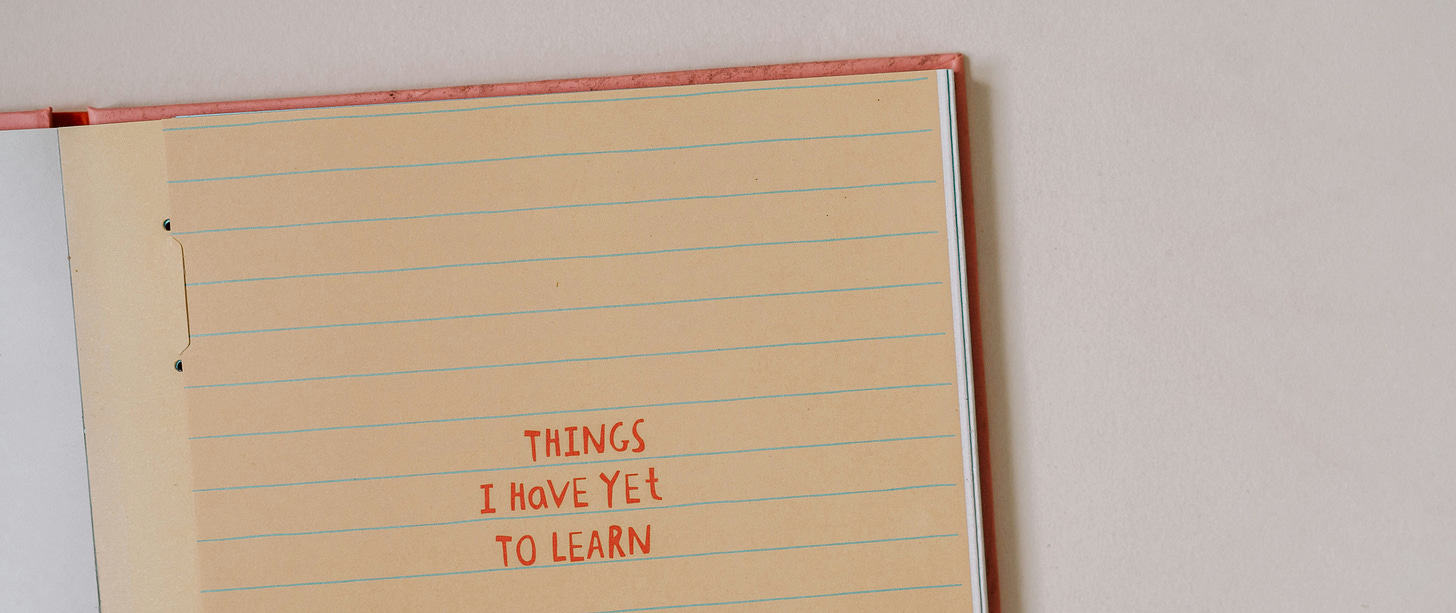Feeling stuck? Try some PD
Professional (or personal) development can give you a new outlook and help you move forward
Do you keep getting passed over for promotion, or are you struggling to find a new role? Perhaps you want to change careers but don’t yet have the right skills? Or maybe you just want to challenge yourself personally with a new skill?
If you said yes to any of these things, then a bit of PD (professional development, but it could also stand for personal development) could be the answer.
Professional development can help you…
⭐️ Add something fresh to write about in your CV and cover letter.
⭐️ Round out your skillset with an extra skill.
⭐️ Legitimise your skills with a professional qualification or certificate.
⭐️ More easily adapt to changing requirements within your role or sector.
Personal development can…
⭐️ Give you a new challenge which extends your thinking.
⭐️ Add a different skill to your skillset, which may help you at work too. For example, if you are a professional copywriter, consider a course in creative writing. If you are a CEO who does a lot of public presentations, consider learning to be a Toastmaster.
⭐️ Improve your well-being by giving you a new sense of purpose.
⭐️ Improve your emotional intelligence, which can help you better understand and relate to others.
⭐️ Improve cognitive skills, which research suggests can help to reduce the risk of illnesses like dementia.

How to do PD
There’s no one right way to approach professional or personal development. Some people prefer structured learning while others like to take a practical approach. Some might like to focus on one subject at a time, while others prefer a wide range of topics.
The trick is to find the way that works for you - because then you’ll be more likely to stick to your project and achieve your goals. But here are a few tips.
What if you are on a time crunch?
#1 Try bite-sized training
Not all development has to be huge courses. Bite-sized learning can be just as effective and can be easier to manage. Options include:
Self-paced online learning modules
Lunch and learn sessions
Short webinars hosted by experts in your field
A one-off in-person training session
#2 Ask to complete some PD as part of your workday
Upskilling during work hours means you have to find less time at home to learn your skills. Ask if you can take an hour a week to do an online course or attend some training.
#3 Make it flexible
Instead of trying to complete a whole course at once, find out if you can complete it in sections or stages. That way, you only need to allocate shorter amounts of time at any point.
What if you’re on a limited budget?
#1 Look for free resources or courses
Lots of organisations and industry leaders offer free resources that you can take advantage of. Look for in-depth guides that can be downloaded, templates for practice or free webinars.
There are also several places online where you can complete free courses. These include business and professional development-related courses and courses on a wide range of other subjects such as humanities, literature, technology and languages.
Remember to review the course thoroughly before you start. Ensure the timeframe, learning style and assessment options work for you and look for reviews from other attendees as to the quality of the course.
#2 Swap skills with a friend or colleague
If you aren’t so worried about getting a formal qualification at the end of it, then doing a skill swap with a friend or colleague can be a more cost-effective option. Are you rubbish at networking but have a friend who is the life and soul of every party? Get them to give you some tips. Or perhaps you’ve got a relative who has a skill you’ve always wanted to learn, like knitting. You can barter your skills in return.
#3 Volunteer
Volunteering costs you nothing but time, but it can bring lots of benefits if you are job hunting. Look for a volunteer role that helps to close your skills gap or puts you in touch with the right people, or offers you a way to enjoy something you couldn’t otherwise. And if you volunteer at a charity, you’ll be helping a great cause along the way.
What if you need some accountability?
#1 Enrol in a class
Taking a class has several benefits. First, you have a scheduled time when you are going to work on your new skill or PD. That makes it easier to block into your calendar.
#2 Get an accountability buddy
Finding someone to learn with you can help to keep you motivated. It also gives you someone to bounce ideas off or to work through problems.
Do you take a class or are you currently enrolled on a course? How have you found it?

